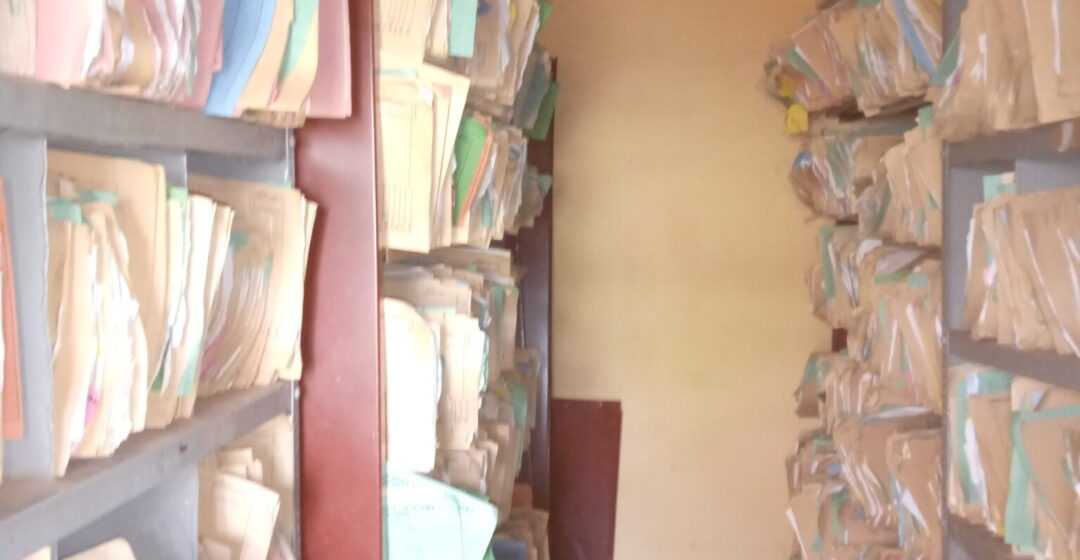This topic will discuss the digitalization of healthcare in Africa (Nigeria), which focuses on my research experiences of the Nigerian public healthcare systems and will be narrowed towards electronic health records during one of the healthcare project tasks assigned to me. This will conclude with revelations and my motivation for this topic, and research area and to further deepen my research as a doctoral student researching healthcare digitalization.
My Experiences for HealthCare Digitalisation
Firstly, research has revealed that in the current and the next decade to come, healthcare systems management and administration has begun to a Paradigm shift from a traditional-based approach to a technology-driven approach, and where the healthcare delivery Process is centred on connected care towards a patient-centric approach, Precision based approach or medicine. This journey is driven by a technology base solution called Information, Communication Technology (ICTs).
Health Digitalisation
Healthcare digitalization is a health system and process where Information and communication technologies (ICTs) tools and devices is used for gathering, storing, retrieving, processing, analysing, and transmitting information for better healthcare diagnosis, treatments, and precision health service outcome, centred towards patient via connected care for effective and efficient healthcare delivery.
Secondly, based on my experiences working in Africa, in a Ministry of Health project as a Project researcher in 2019, I was assigned to inspect 25 Public healthcare institutions across Nigeria.
During my visit to the facilities, I made my observations, had a focus group session and questionnaire administered to hospital staff after tabulating my readings and analysis the study revealed that ICTs for Healthcare or Digital health were under-utilized.
Digital health is a broad topic, however, my discussion of the research experience will be narrowed to electronic health and medical records.
Electronic Health Record
Electronic Health Record is an electronic or digital data of patient paper-based document of medical details and history. This contains known Patient Medical History, Diagnoses, medications, Treatment Plans, radiology images, allergies, Immunization dates, laboratory and test results, and Pharmaceutical drug history. The system is used in making an automated and real-time clinical decision of a patient. And this data can be shared with other hospitals either private or public health institutions. The patient is assigned with a computer unique Identity for the filling. It can also process payment for the hospital and also generate data for statistical purposes.
Patient medical records are stored and process through a paper-based filling system and the level of digital health, or digitalization diffusion is at the growing stage. Patient health records are stored on a shelf as hard copy documents.
If a patient wants to see a doctor, He will require to go and sort the file first at the medical records department, before proceeding to make payment to see a Doctor. However, if the patient last visited the hospital 8 months ago or even 3 months, in such case the file will be difficult to locate or the patient may have a missing file in some cases. And He or she may be asked to go and come back another day. If it is an emergency case or serious case the patient will be required to open a new folder.
Furthermore, the African continent has had significant benefits of healthcare digitalization in some communities and rural areas through the application of Information communication technology and digital devices in managing healthcare, but the level of coverage is very low compare to developed nations like the US and Finland. Linking to the research of various scholars, Healthcare digitalization is still under-develop in various African countries. But its benefits and application are significant and at a growing state with a great viable future ahead.
My Motivation for Healthcare Digitalisation
As an information systems graduate and a healthcare professional, I realized the need and gap for effective and efficient healthcare service delivery using the Digital health tool. Electronic Health Record systems will streamline healthcare delivery to precision-based healthcare or medicine. This will eliminate the paper-based approach. It will solve issues of error in filing and treatment of patients, also it will keep informing healthcare provider for better healthcare decision and treatments. To this end I was motivated to health my people in the African continent, precisely
Nigeria and other developed nations to deepen the healthcare improvement process using digital healthcare strategies and tools. For this reason, I got myself enrolled in this doctoral program at the University of Vaasa to enable me to advance my skills to solve health-related and economic problems in society.
Pius Reuben Ewoh
Doctoral Student
School of Technology and Innovations
Doctoral Programs of Technical Sciences





A very interesting topic.
Your research will indeed contribute towards improving health care service delivery time as well as help prevent fatalities from emergencies resulting from papar-based delays in the sorting/searching for patients health records.
All the best with your research!
Thank you Ejike. Yes towards a precision based healthcare delivery and services using ICT as a Driver.
Dear Pius,
I really enjoyed your topic. It is extremely interesting for me.
You have shared your personal experience and motivations in the field of healthcare digitalization, particularly in the African context. Through your experience working on digital health projects in Africa, you have highlighted the potential benefits of digitalization in improving healthcare outcomes and reducing inequalities.
You have also provided valuable insights into the challenges faced in implementing digital health solutions in resource-constrained settings, such as the lack of infrastructure, limited resources, and low digital literacy among healthcare providers and patients.
Overall, the post is informative and provides valuable insights into the potential benefits and challenges of healthcare digitalization in the African context. It also highlights the importance of considering the unique needs and constraints of different settings when developing and implementing digital health solutions.
Your personal experience and motivations make the blog post engaging and relatable, and it serves as an inspiration for others interested in working towards improving healthcare outcomes through digital solutions.
I hope you all the best.
Best Regards
Mehran